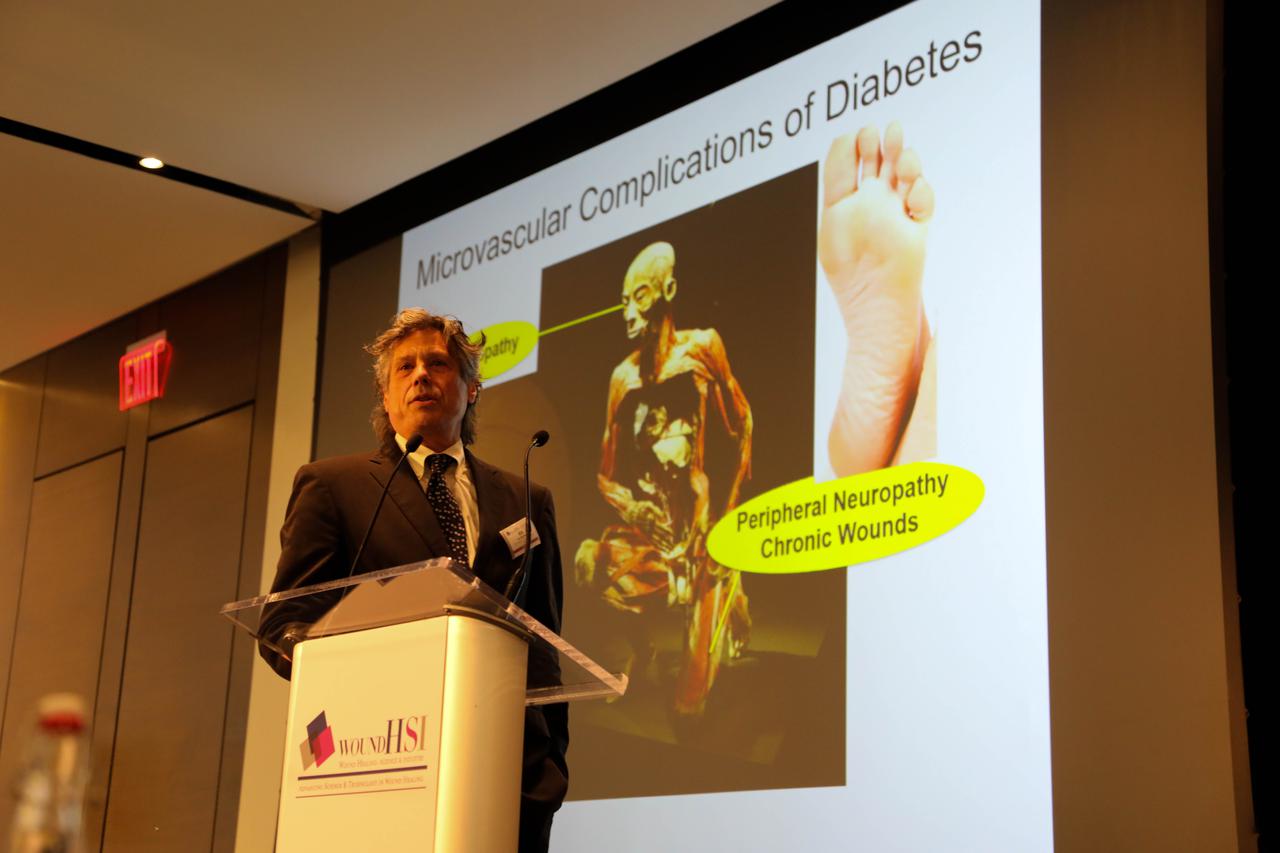
Being an expert doesn’t mean knowing everything. In fields as dynamic as Wound Care, Vascular Surgery and Medicine, continuous learning sustains each of us with pivotal, evolving updates. That’s why WHSI’s Wound Care, Vascular Surgery and Medicine conference is so crucial. We create an intimate environment wherein top experts are accessible and can enable interaction and opportunity with key innovators, practitioners, regulatory experts and industry leaders: all specialists in Wound Care, Vascular Surgery and Medicine who help to make transformative change for all those in need of healing.
Here’s what you’ll learn at WHSI’s Wound care conference:

1. Where we are
At WHSI, we discuss where discovery and innovation enable transformative care, regardless of whether for chronic wounds, peripheral arterial disease management, or amputation prevention.
It’s increasingly common to apply endovascular treatments as opposed to open, invasive surgeries for arterial disease. In America, peripheral arterial interventional procedures have superseded coronary procedures as the most common. This is a testament to progress.
Technological innovations and cutting-edge devices have generated an increased rate of successfully crossing chronic total arterial collusions, even if heavily calcified. Ultimately, we’ve realized an improvement in the long-term safety of vascular access. While appropriately-selected open surgery will often maintain limb for very long periods of time.
At the nexus of this success and progress is empirically backed, science-based medical practice. Ongoing clinical trials help us navigate which patients require which approaches. Hybrid and combination therapy, in conjunction with best medical care and aggressive tissue reconstruction continue to provide improving outcomes. WHSI conference is designed to allow a frank conversation in regards to the multiple specialties required to fufill our patients’ needs.
2. Innovations and research
At WHSI’s Wound Care, Vascular Surgery and Medicine conference, you’ll be exposed to groundbreaking research and innovations primed to shift the industry paradigm.
This is vital exposure for surgeons, physicians and academic experts; because innovation occurs at the intersection of diverse fields. Innovations often usurp established markets while breakthroughs in technology and research could reset the tectonics of healthcare as we know it.
While innovations experience accelerated advancement, there are still challenges. In the current model, a substantial amount of evidence is required by the medical community to accept solutions as viable.
Moreover, innovative devices are often subject to rapid improvement and change. This makes extensive evaluations of each iteration costly and potentially difficult.
By enjoining researchers and innovators, industry leaders, and clinical experts, we enable disruptive change together at WHSI.
3. Technology
It’s impossible to separate technology from private companies. Satisfying the rigorous criteria of evidence demanded by the medical community requires ‘dependent research.’ Clinical research is largely dependent on market-available technologies often supplied by private partners.
This cross-pollination of information between academia, industry, and clinicians. We’re committed to continuing this fruitful tradition.
Wearable devices
Wearable devices have emerged as major players. These offer invaluable insight into patient health and enable doctors to monitor health in unprecedented ways.
A major benefit for innovations is the data it culls. By analyzing an unprecedented reservoir of data, establishing technologies as viable healthcare solutions is easier than ever before.
Implanted devices
Implanted devices have been implemented as enhancements to catheter-oriented therapies. Research and developments in this technology are forecasted to be monopolized by:
Patient management and healthcare systems
Historically, we’ve focused on death. Now, the focus has shifted to ‘quality-of-life endpoints.’ By prioritizing cost-effective treatment strategies, healthcare systems are expected to change from a fee-for-service to a fee-for-value model.
Hospital at Home Enabling Technologies
The pandemic has rapidly advanced the focus on taking care of patients in their own home. New technologies will help enable us to do a better job of assessing the patient's wound parameters and vascular status. The addition of these tools to those that are still available to the care extender may well help us keep patients out of the hospital, decreasing costs and increasing the quality of their life.
Register for WHSI’s Wound Care, Vascular Surgery and Medicine conference now!
If you’re a surgeon, researcher, or company that specializes in wound care and amputation prevention, WHSI’s Wound Care, Vascular Surgery and Medicine conference is an invaluable resource. Boasting an unparalleled, open exchange between experts from every facet of the industry, this is where the future is forged. We’re proud to be the connective tissue between companies and care providers. Register now and join us!